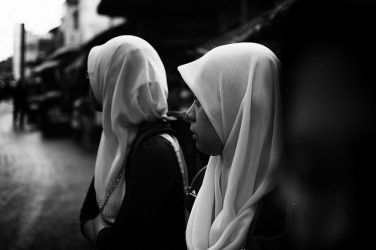
Economic crises and political instability have taken over the spotlight in Europe for a considerably long time. We seem to have neglected those who fight for Europeans subtly, everyday, in other crucial areas, whose efforts are changing the lives of many and whose intentions are inspirational. As a result, for this issue’s Top European, we introduce you to Swedish MEP Eva-Britt Svensson.
A survivor of domestic violence
A member of Sweden’s Left Party and vice-chair of the European United Left – Nordic Green Left (GUE/NGL) in the European Parliament, Svensson is mostly known and praised for her role as the chair of the Committee on Women’s Rights and Gender Equality, publicly fighting for recognition of gender-based violence – physical, mental and sexual violence imposed by men on women and girls – and for the prevention of gender stereotyping in the media in Europe.
According to Jerzy Buzek, European Parliament President, one in four adult European women is a victim of physical violence, and one in ten of sexual violence, at least once in her lifetime.
“Unfortunately, many women never seek help because of fear and shame,” he said in a speech to mark International Women’s Day 2010.
And it is exactly this shame and fear that Svensson vows to confront and defeat. As a victim of domestic violence herself, who suffered from mental and physical harm from her husband of 20 years, Svensson has only taken advantage of her experience to make herself more determined to give women in Europe a stronger voice.
“I want to show other women that you can not only survive, but also build a good life for yourself and your children. When you live in these relations, you feel ashamed and think it is your fault. Women need to know that it is not their fault. It is nothing to be ashamed of. It [gender-based violence] is a crime, and you must leave the abuser and go to the police, if necessary.
“I decided when I survived that I would keep on showing that it was not my fault, and that I would go on with my political work. I’m proud of what I’m doing,” Svensson said in an interview.
During her political career, she has been involved in many EU-wide campaigns to protect women, such as “Stop domestic violence against women”, and supported the United Nations Development Fund for Women (UNIFEM) campaign “Say NO to Violence against Women”. As the chair of the Committee on Women’s Rights and Gender Equality, she pushed through a parliamentary resolution on eliminating violence against women, which was finally adopted in 2009. As a result, the Commission was asked to declare a “European Year of Zero Tolerance of Violence against Women” within five years.
To many, this may all sound like bureaucratic jargon. To some extent, it is. But on the other hand, long before Svensson took over responsibility, there was already the need to establish such resolutions but nothing happened until this Swede came along.
Fight for recognition and public prosecution of gender-based violence in Europe
Currently there are still EU member states in which gender-based violence does not fall under public prosecution, which is an issue that Svensson has been urging the EU to change. Additionally, topics such as working equality for women, measures to stop female genital mutilation, prosecution of domestic violence, forced marriages and so-called “crimes of honour” are put on the table for concrete discussions. They are no longer topics that can be put aside, but realities that need to be dealt with, with legal enforcement
With her experience and understanding in violence against women, Svensson thinks like a member of the group that she is trying to help – female victims are generally afraid and ashamed to talk about the attacks. Therefore, under her leadership, the Committee suggested appointing national rapporteurs to gather information, establishing a single system so that all competent authorities would be able to record instances of assault, and training professionals to approach victims and record the incidents, in order to hold the perpetrators responsible for their actions.
Svensson is also involved in the Stockholm Programme (2010-2014), which further stresses the protection of the victim from retaliation while awaiting results from the prosecution.
I’m so happy that I survived [the violence]. I couldn’t believe that I did. Now sometimes I feel very strong. I want to shout all over the world, ‘Look at me. It’s possible!’
In 2010, her commitment to her political life, especially in the aspects of tackling violence, was recognised and she was given an “Outstanding Achievement” award by The Parliament Magazine.
Violence against women has not been completely eradicated from Europe and the difference Eva-Britt Svensson made cannot rescue all the victims from their misery. But at least, this sensitive – and often easily forgotten – topic has a much higher profile as a policy issue at the EU level.
In 1st September 2011, Eva-Britt Svensson resigned from her post in the European Parliament for health reasons. It is a pity that someone as strong, determined and personal as Svensson is out of the political arena. But her words and her cause should still encourage women across Europe and beyond.
Cover photo: GUE/NGL (Flickr) Licence: CC by NC-ND 2.0







